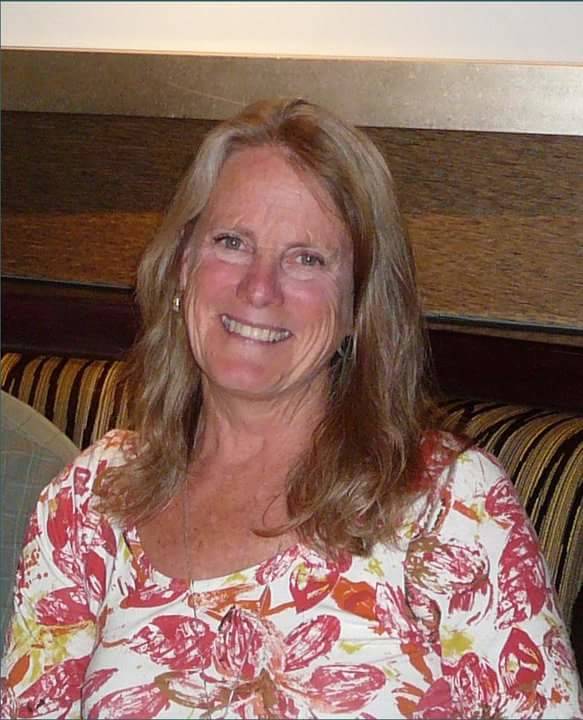In the upcoming municipal elections, there are four seats open on the Kenai Peninsula Borough School District’s Board of Education. Current school board president Penny Vadla is running unopposed for reelection to the District 4 seat, which represents the Soldotna area. Vadla spoke with the Clarion about her candidacy ahead of the election. The interview has been edited for length and clarity.
Why did you decide to run for reelection to the school board?
Vadla: This will be the beginning of my fifth term on the school board, and I’ve been on since 2008. I have a lot of institutional knowledge and a lot connections and I’ve made some relationships that have been really important to me.
Going forward, I wanted to maintain those, but really what I wanted to do in running was look at some of the goals that we have and work towards ensuring that those goals are attained, or at least there’s movement along that line.
I feel good about going forward. We have so many things confronting us with the pandemic, with our priorities, with funding, and I’m running to attain those goals and ensure the quality educational programs that we currently have in our district going forward, despite budgetary issues. I really care about kids and I really care about our district and our communities.
What would be your biggest priority as a school board member going into 2021?
Vadla: All of our priorities have shifted. One of the priorities we have as a board is how we could potentially be held harmless for our count that comes due in October. So that’s really important to me. How do we come out of this pandemic with budgetary issues facing us?
If I can have two, another priority is moving forward with a successful superintendent search, because I think that successful superintendent search will enable us to continue some of the instructional programs we’ve put in place: personalized learning, moving to having students be more engaged in the educational process and looking at where they are and where they want to go. Getting somebody who will carry on some of what we’ve done, but also look to the future and see how we’ll need to change with everything that has happened within the last few years.
How do you feel the district has handled the start of the school year, and is there anything you feel should be changed or addressed going forward?
Vadla: I think there’s always going to be issues that we’re going to have to address on a case-by-case basis. People want sports back in place, but it has to be safe, and I think some of those mitigations need to be looked at it.
I believe we’re trying to meet everyone’s needs as carefully and as quickly as we can, and I know that there are people who are afraid to go back to school and don’t want their students there. And there are people who do want their students to be back in school.
I think the issue initially was the masks, and we wanted it down lower, but we have it (required) down to third grade. And the students seem to be adapting. So we’re trying to accommodate for the needs of as many people as we can without making accommodations that aren’t realistic.
The district has seen a shift to home-schooling and implemented more remote learning into the curriculum because of the pandemic. How do you see those changes impacting the district in the long term?
Vadla: I think the most important aspect of teaching is the relationships that we build as teachers with our students. And I really believe that that is done most clearly and most easily through face-to-face learning.
That doesn’t mean that there aren’t instances when remote learning is useful, when you can connect a student in a school like Soldotna with a student across the bay, or you can connect a student in one of our remote villages with somebody in another country.
So I think there’s room for both platforms, and how we use them will be determined by the circumstances that come forward. My hope is that we would maintain our brick-and-mortar schools and that people who want to take home-school through Connections would have that opportunity as well.
Teacher retention was also an issue for the school district even before the pandemic, and now the demand for substitutes and faculty is higher than ever. How can the district ensure that it can hire and retain the staff that it needs?
Vadla: That’s a big question, and it isn’t just the Kenai Peninsula that’s having a problem getting teachers, it’s the whole country, and there are lots of reasons behind that.
In the state of Alaska, I think that it would be important to have a reasonable retirement system, so that people who come up here for a year like I did many years ago, love it so much that they stay. I think we could also do that by showing what we do here and encouraging teachers to come. I mean people who come here love to come here, but when they’re worried that their job is going to be cut because of budget issues, quite frankly that’s an issue too.
As far as substitutes, we’ve been working on that because we had a couple complaints that there’s not enough pay. So we recently increased the pay for substitutes, and I think we’re looking at how to make the substitutes feel more welcome. How can we follow up and say what worked this year and what didn’t work? That’s something I’ve been looking into, trying to figure out a way to encourage more people to substitute.
Reach reporter Brian Mazurek at bmazurek@peninsulaclarion.com.

